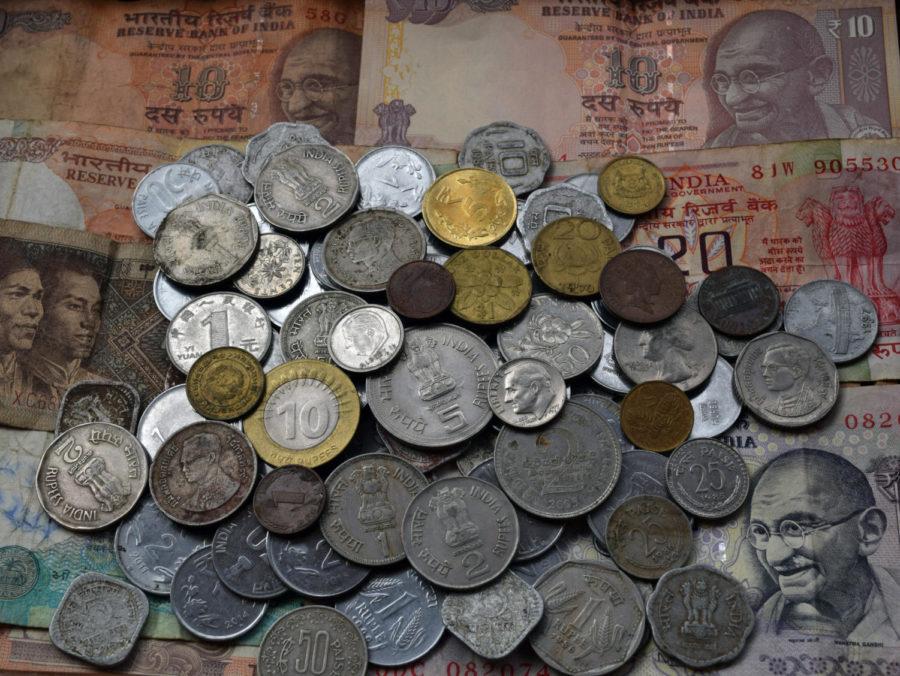Chinese yuan rate increase has effect on international students
International currency
October 4, 2015
After the wake of a recent exchange rate increase, the Chinese yuan has become devalued in the United States, causing a stir of questioning among international Chinese students at Iowa State.
The exchange rate from the yuan to the dollar was approximately 6.2 in late July, meaning ¥6.2 is equal to one U.S. dollar. The rate has now increased to about ¥6.37, creating a difference of ¥.17 in the currency exchange.
This number may seem inconsequential, but to some international students from China, this amount is cause for alarm.
“In early August, everyone on my Chinese version of Facebook [was] talking about the exchange rate,” said Hanxiao Hu, president of the Chinese Students and Scholars Association. ”I was panicking a little bit, as well as people I knew and my parents, because we didn’t know if we should transfer our money to the bank before school [in August] or wait until the exchange rate went down.”
The change these students are referring to most directly affects the tuition cost for them to attend Iowa State. Current out-of-state students can expect to pay upward of $32,390 annually, including room and board, according to the Iowa State Office of Student Financial Aid.
This cost is added to travel accommodations and other expenses associated with moving to a new country, often totaling between $5,000 and $10,000.
This comes out to about ¥238,174 when converting from the dollar compared with about ¥231,818 in July before the conversion spike.
That difference amounts to a little less than $1,000 more per year that international Chinese students are expected to pay in tuition.
But tuition isn’t the only expenditure affected by this shift.
“I have a credit card that links to my account in China, but it uses the current exchange rate,” Hu said. “So I no longer use [the credit card] because it’s going to end up costing me more money.”
For example, a new dorm futon may cost as much as $200, but when taking the yuan exchange rate into account, the price will increase by $5.
While this added expense equates to a cup of coffee for some students, Hu said these purchases add up during the school year.
”For a time, the exchange rate was up to almost ¥6.4. It doesn’t seem like much for a dollar, but when you pay $10,000 to come here, it adds up a lot,” Hu said. “Luckily, I was fortunate enough to have money transferred before the spike, which meant less was taken from the exchange.”
John Beghin, ISU professor of economics, said the relative steadiness of the U.S. exchange rate for yuan — about .15 to .16 — puts the U.S. at a slight risk of losing international students to other countries in the near future.
Beghin said international students are starting to view countries like Australia and Canada as more appealing places to study where yuan is worth more.
This is in reference to Australia and Canada providing almost .21 to .225 dollars per yuan, a 40 percent increase compared with a U.S. education, which is considered a global export that is worth almost $8 billion in fees and tuition to the United States, according to the Bureau of Economic Analysis.
The number of Chinese students in the United States is expected to reach more than 350,000 in the next three years.
“China is not in a recession,” Beghin said. ”[It] just [isn’t] experiencing growth as rapidly [it has been] in the past. If you look at the exchange rate from the past year, it hasn’t moved much at all. It’s only really changed slightly in the past few months.”
China’s current economic wealth allows it to devalue its own currency in order to make eastern exports seem cheaper and more appealing to western markets, which it believes will help spur growth.
”It’s a political move,” Beghin said.
Recent spikes in the yuan exchange are not a new phenomenon. In 2011, the rate was as high as 6.7 but slowly tinkered its way down to a recent low of 6.0 in 2014.
Hu said the fluctuating yuan rates are somewhat normal, and it’s how the issue is dealt with and how long the rate lasts that affects students living overseas.
“I’d say it will make me more cautious when spending money in the future,” Hu said.







